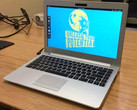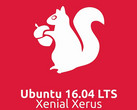“Alas, poor Unity! I knew him, Ubuntu!”
Canonical, the company behind the popular Linux distro Ubuntu, is effectively killing off its Unity desktop environment after 6 years of development. Unity was created with the effort to bring Ubuntu to new devices, particularly phones and tablets. It was Canonical’s hope that the UI could be seamlessly integrated across notebooks, desktop towers, and smartphones. However, the project met with difficulties, both from the Linux community and from corporate parties.
In a blog post on the Ubuntu website yesterday, founder of Ubuntu and Canonical Mark Shuttleworth stated that Canonical will “end [their] investment in Unity8” and “shift [their] default Ubuntu desktop back to GNOME for Ubuntu 18.04 LTS.” He expressed that he “took the view that, if convergence was the future and we could deliver it as free software, that would be widely appreciated both in the free software community and in the technology industry, where there is substantial frustration with the existing, closed alternatives available to manufacturers.” Now, he feels that he “was wrong on both counts.”
Unity was met with ambivalence in the Linux community with many seeing it as fragmentation. IT corporations also didn’t seem interested in pursuing Unity due to what Shuttleworth calls a “‘better the devil you know’ approach” to computers and mobile devices. It’s likely that Ubuntu didn’t catch on in the corporate sector due to compatibility issues with business-centric applications and tools.
On the plus side, Ubuntu has seen huge success with cloud software and Internet of Things (IoT) developers. Shuttleworth said that “most public cloud workloads, and most private Linux cloud infrastructures, depend on Ubuntu.” He went on to state that “most of the IoT work in auto, robotics, networking, and machine learning is also on Ubuntu.” This is huge for Canonical, as the company provides “commercial services of those initiatives.”
The news of Unity’s demise isn’t surprising for those that have been following its development. After the Ubuntu Phone failed to gain any noticeable market share since its debut years ago, the device saw a continually slowing development cycle and seems to have gone quietly into the night. Also, the success of Canonical’s other business lines (like IoT development) is likely requiring much of their attention.
Good-night, sweet Unity, and flights of angels sing thee to thy rest.

















